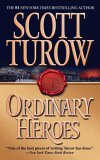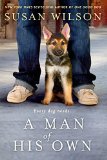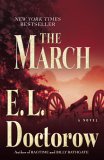Summary | Excerpt | Reading Guide | Reviews | Beyond the book | Read-Alikes | Genres & Themes | Author Bio

From the book jacket:
Stewart Dubin knew his father had served
in World War II. And he'd been told how he
rescued Stewart's mother from the horrors of
the Balingen concentration camp. But when,
after his father's death, he discovers a
packet of wartime letters to a former
fiancée and learns of his father's
court-martial and imprisonment, he is
plunged into the mystery of his family's
secret history and is driven to uncover the
truth about this enigmatic, distant man who
always refused to talk about his war.
Reconstructing the terrible events and
agonizing choices his father faced on the
battlefield, in the courtroom, and in love,
Stewart gains a closer understanding of his
past, of his father's character, and of the
brutal nature of war itself.
Comment: Moving away from fiction (and non-fiction)
centering on the courtroom, but keeping a
character we've met in previous books
(Kindle County journalist Stewart Dubin)
Scott Turow tries his hand at a World War II
story, inspired by his father's
own military experience. His father was an army doctor in Europe during World War II. A few years ago his mother gave him access to his father's personal effects from World War II, including letters, hand drawn maps and hundreds of photographs. These provided context to the stories that Turow had heard from his father all his life - many of which made their way into Ordinary Heroes.
With a few relatively minor criticisms, the reviewers love it. Publishers Weekly writes, "Turow makes the
leap from courtroom to battlefield
effortlessly". Library Journal thinks it "an
extraordinary and unforgettable novel" (while
also commenting that some of the historical
facts presented are not 100% accurate). Kirkus Reviews says that "while some of the
writing succumbs to war-is-hell cliché, the
story of shifting allegiances, divided
loyalties, compromised principles and primal
instincts is as engrossing as any of Turow's
legal thrillers."
![]() This review was originally published in The BookBrowse Review in January 2006, and has been updated for the
October 2006 edition.
Click here to go to this issue.
This review was originally published in The BookBrowse Review in January 2006, and has been updated for the
October 2006 edition.
Click here to go to this issue.

If you liked Ordinary Heroes, try these:

by Susan Wilson
Published 2015
Three broken souls, and one dog: Pax. All three of them need healing. All three of them are lost. And in Susan Wilson's A Man of His Own, Pax, with his unconditional love and unwavering loyalty, may be the only one who can guide them home.

by E.L. Doctorow
Published 2006
Stunningly renders the countless lives swept up in the violence of a country at war with itself. The "Great March" in E. L. Doctorow's hands becomes something more – a floating world, a nomadic consciousness, and an unforgettable reading experience with awesome relevance to our own times.
Your guide toexceptional books
BookBrowse seeks out and recommends the best in contemporary fiction and nonfiction—books that not only engage and entertain but also deepen our understanding of ourselves and the world around us.